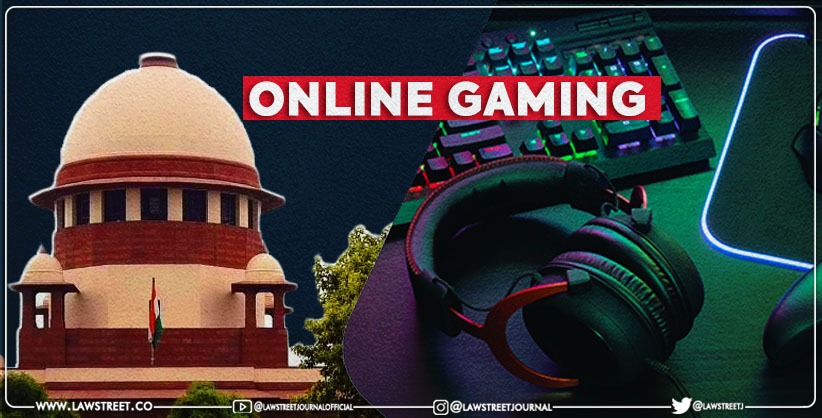NEW DELHI: The Supreme Court on Friday issued notice to online gaming companies and others on a plea by the Tamil Nadu government against the Madras High Court's August 3 judgement that had struck down the state's ban on online gambling like rummy and poker on cyberspace with stakes.
In its petition, the Tamil Nadu government claimed the High Court had erred in holding that the state lacked competence to pass the legislation to regulate these online betting games. Among other grounds, the state contended the teenagers and adults were losing their entire earnings and savings due to these games.
Describing the game as a legitimate business, the High Court had declared as unconstitutional, Part II of the TN Gaming and Police Laws (Amendment) Act, 2021, which banned betting or wagering in cyberspace and also games of skill if played for a wager, bet, money or other stakes.
"By imposing a wide ranging complete ban, the least intrusive test was violated and the ban had thereby fallen foul of Article 19(1)(g) of the Constitution that allows people the right to practise any profession, or to carry on any occupation, trade or business," the HC said.
The legislation with a wide-ranging ban must be regarded as excessive and disproportionate to the object sought to be achieved, it said.
On Friday, acting on the appeal filed by the Tamil Nadu government through advocate Joseph Aristotle, a bench of Justices Aniruddha Bose and Vikram Nath sought a response from skill-based gaming firms Junglee Games, Play Games24x7, Head Digital Works and industry body 'All India Gaming Federation'.
Seeking restoration of the ban, the state government questioned validity of the Madras High Courts order which struck down the 2021 law.
Notably, the Kerala and the Karnataka High Courts had also subsequently overturned similar laws passed the respective states. suspensions in their respective states.
The state government asserted the 2021 Amendment Act qualified as a legislation on the subject of betting, which is a distinct area open for State legislation under the Constitution.
Contending that teenagers and adults were losing their entire earnings and savings in these online betting games, the Tamil Nadu government said that though rummy might be a game of skill, the game using stakes will become gambling.
According to the petition, the impugned Amendment Act is also entirely consistent with Part III of our Constitution.
With regard to compliance with Article 14, the state government said the 2021 Amendment Act is reasonable as it makes a clear-cut classification between online games played for financial or other valuable stakes and other games and the classification has a rational nexus with the stated object of the impugned Act in countering ruinous addiction to gambling activities, which has led to numerous suicides and other economic and social harms.
"Neither can the impugned Act be described as manifestly arbitrary, since its enactment was guided and supported by a body of data and administrative experience describing the ill-effects of gambling addiction in society, the state government said in its appeal.









